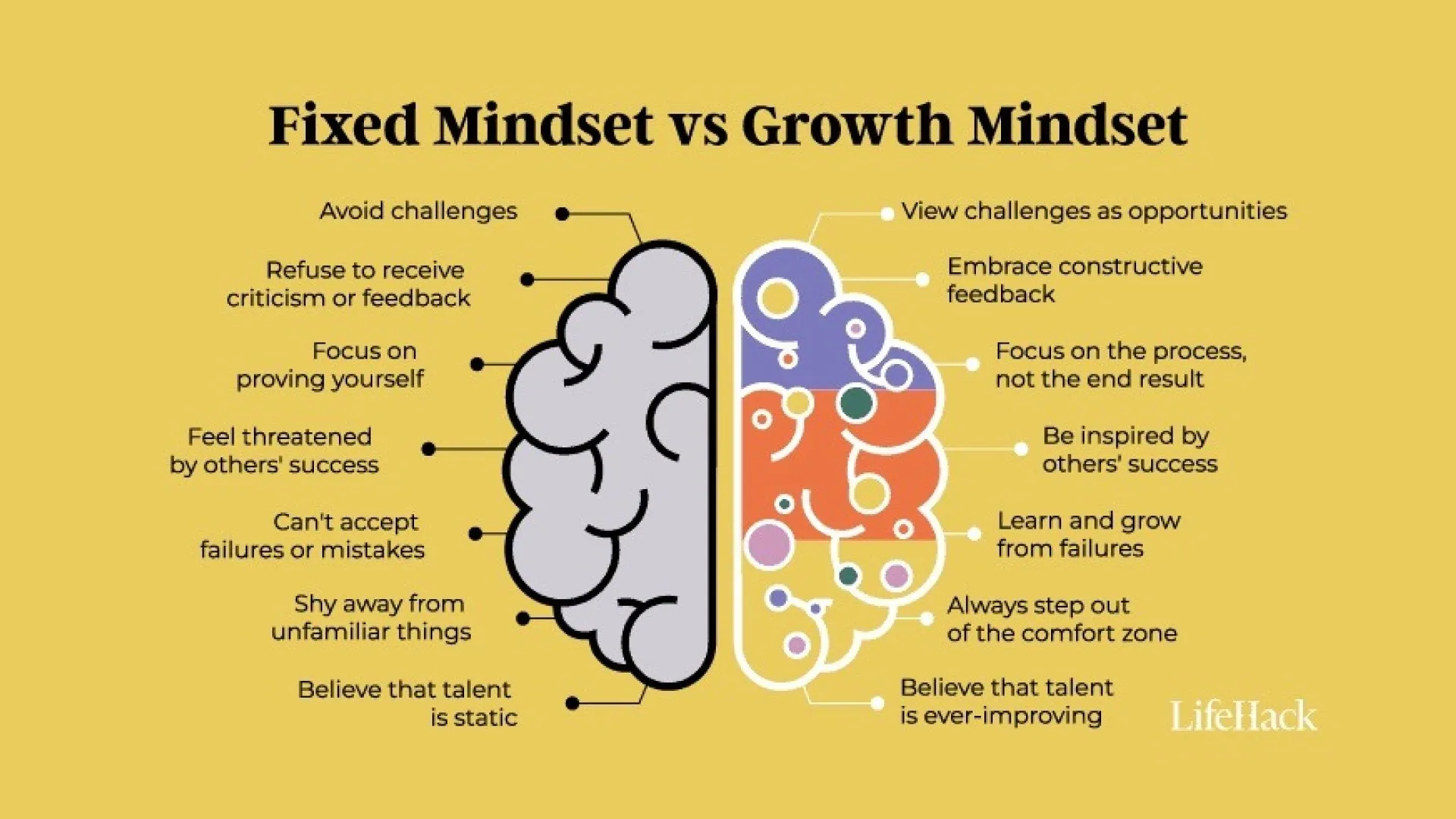[@dweckMindsetNewPsychology2008]
“True self-confidence is “the courage to be open—to welcome change and new ideas regardless of their source.” Real self-confidence is not reflected in a title, an expensive suit, a fancy car, or a series of acquisitions. It is reflected in your mindset: your readiness to grow.” ― Carol S. Dweck, Mindset: The New Psychology of Success
= Infinite Mindset = Grow-the-pie Mindset

持續修正,不斷嘗試、試錯,重點是 積少成多、聚沙成塔、一次比一次更好的迭代/堆疊 過程 (like interval workouts)。
駭客精神: 好還要更好!
Kaizen (改善)
“Talent is a pursued interest. Anything that you’re willing to practice, you can do.” — Bob Ross
Approach everything in life as a skill at which you can increase your competency through practices. You get better at what you practice. What you like to practice is what’s worth pursuing. Getting to perform is just a bonus. Everything is practice. Practice makes perfect. 1
How to Make Anything a Skill
- Clearly define success and failure
- Make it practice-able
- Create feedback loops
- Track your progress over time
先求有,再求好
Get going. Get good. Get smart.
- The moment to move from “Get good” to “Get smart”: You never cringe yourself. You are confident with the quality of your work.
- Strategies only come to the picture at the “Get smart” stage.
The Power of Yet
“Not the ‘not,’ but the ‘not yet.’ — [@markaurelMeditations2006]
- “I’m not good enough” → “I’m not good enough…yet.”
- “I don’t know how to do it” → “I don’t know how to do it…yet.”
- “I’m not capable of that” → “I’m not capable of that…yet.”
The “have been” Mindset
- I am strong because I’ve been weak.
- I am fearless because I’ve been afraid.
- I am wise because I’ve been foolish.
當你要完成一個龐大而複雜的專案,例如撰寫一份長篇研究報告,可以先快速地從頭到尾寫一遍,不必擔心錯誤或資料不足,甚至可以略過某些細節,重點是先把內容大致架構起來。
即使初稿再怎麼粗糙或充滿錯誤,它至少讓你從零開始向前邁進了一步,讓報告有了雛形,壓力也會隨之減輕。接下來,你可以在沒有過度焦慮的情況下,逐步修改、精煉,就像雕刻作品一樣,先調整大方向,再逐步打磨細節,從 30 分提升到 60 分、90 分。沒有人能夠一次做到完美,因此,重點在於持續改進,而不是一開始就要求「一步到位」或「盡善盡美」。
Locus of Control
Locus of Control is a psychological concept first introduced by Julian Rotter in 1954 that describes how people perceive the causes of events in their lives.
- Those with an External Locus of Control believe that their outcomes are determined by forces outside their control.
- Those with an Internal Locus of Control believe they have control over their outcomes through effort, focus, and attitude.
References
See Also
Footnotes
-
熟能生巧 ↩
